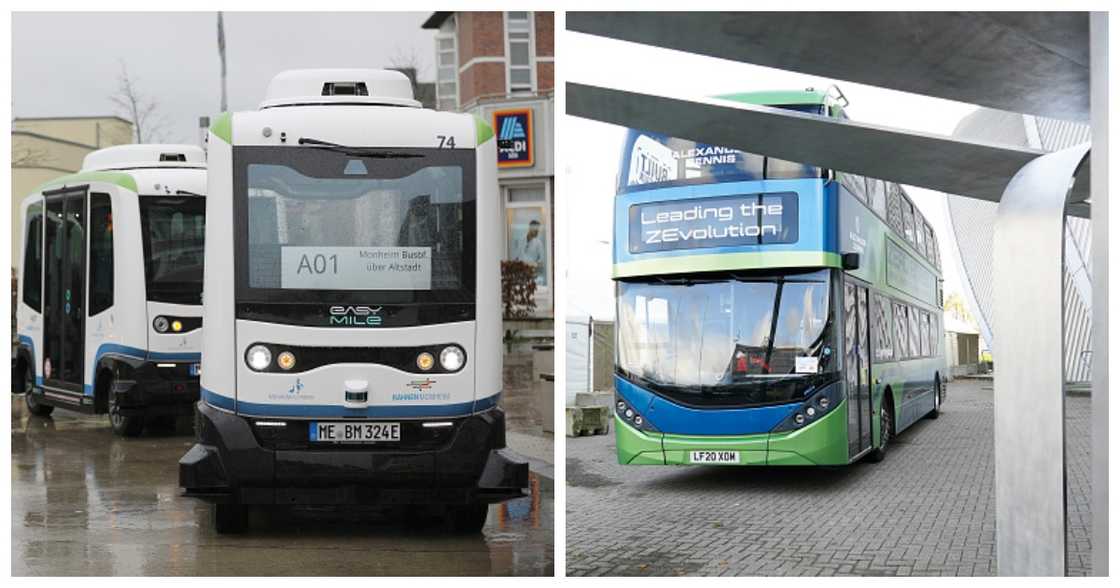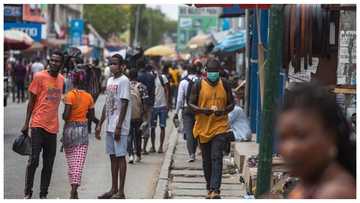Ghana Targets E-Vehicles And Gas-Powered Buses For Public Transportation
- Ghana is working to introduce E-vehicles and other environmentally friendly modes of transport for public transport
- The move is part of the country's energy transition agenda and feeds into the government plan to decarbonise road transport
- An upcoming E-Mobility Policy is being put together to guide the deployment and scaling-up of electric vehicles in Ghana
PAY ATTENTION: Click “See First” under the “Following” tab to see YEN.com.gh News on your News Feed!
Deputy Transport Minister, Frederick Obeng Adom, has disclosed that Ghana was working to introduce E-Vehicles and gas-powered buses for public transport.
He said the move is part of Ghana's energy transition plan and critical interventions that are expected to set the tone for the gradual decarbonisation of road transport.

Source: Instagram
"We are also working assiduously to introduce the first-ever battery-powered electric buses and gas-powered buses for public transportation," he said Thursday, March 31, 2022.
He made the revelation when he spoke on behalf of the Minister for Transport, Kwaku Ofori Asiamah, at a regional stakeholder meeting on the national energy transition plan at Techiman in the Bono East Region.
Download YEN's news app on Google Play now and stay up-to-date with all major Ghana news
Mr Adom said the government was developing an E-Mobility Policy to guide the deployment and scaling-up of electric vehicles in the country.
"Regarding the Road Transport Services, our focus is mainly on the technological shift away from petrol and diesel fuels to a more benign alternative," he added.
He acknowledged the importance of the transport sector to the economy as it is key to ensuring social cohesion but said depending on what technology was being adopted, there could be a direct and indirect impact on the natural environment.
"Majority of Ghanaians depend on small to medium-sized vehicles powered by either petrol or diesel engines.
"Data available at the DVLA shows that out of the 2.8million registered vehicles as of 2021, 72% are powered by petrol engines, 27% by diesel engines, and less than 1% by LPG and other energy sources," he said.
The Energy Ministry has been working closely with the Transport Ministry to roll out the E-Vehicles and gas-powered buses.
When asked by YEN.com.gh about specific timelines for the rollout of environmentally friendly public transport, Energy Ministry PRO, Kwasi Obeng-Fosu, said timelines are unavailable.
He explained that because consultations are still ongoing, it would be difficult to back the Transport Ministry's road transport decarbonisation agenda with tangible timelines.
E-Levy: Analyst Predicts An Increase In Cheque Transactions By ‘Tax Sensitive’ Ghanaians
A financial analyst has predicted an increase in cheque transactions among Ghanaians and businesses and a dip in mobile money transactions in response to the E-Levy passage.
Executive Director, Center for Economics, Finance and Inequality Studies (CEFIS), Dr. Benjamin Amoah, has said that because cheque transactions attract no taxes, “tax-sensitive” Ghanaians will move away from mobile transactions that attract a 1.5% levy.
He also said a major deficit will hit the government’s projected GHS6.9 billion annual revenue.
Our manifesto: This is what YEN.com.gh believes in
Source: YEN.com.gh



